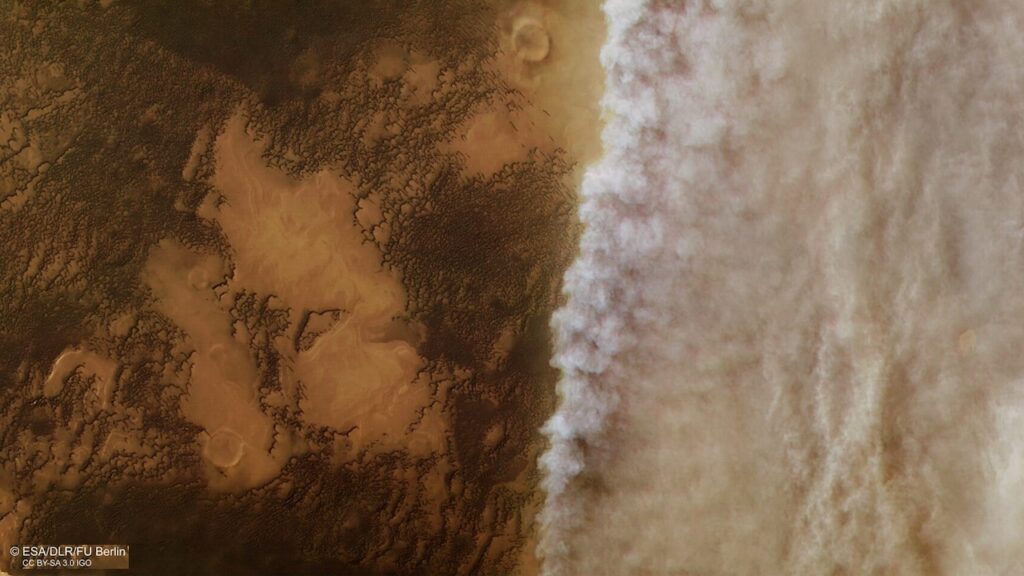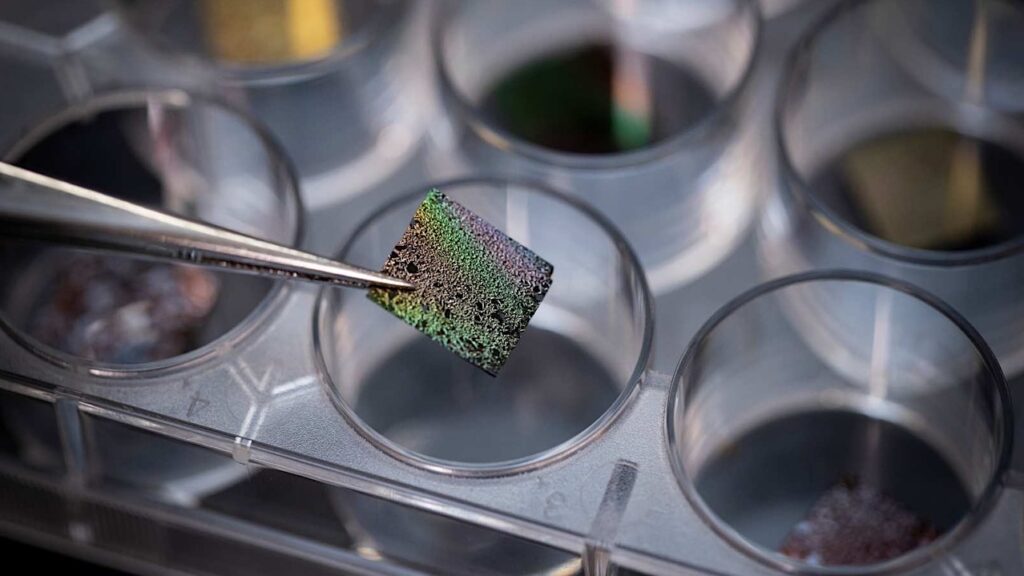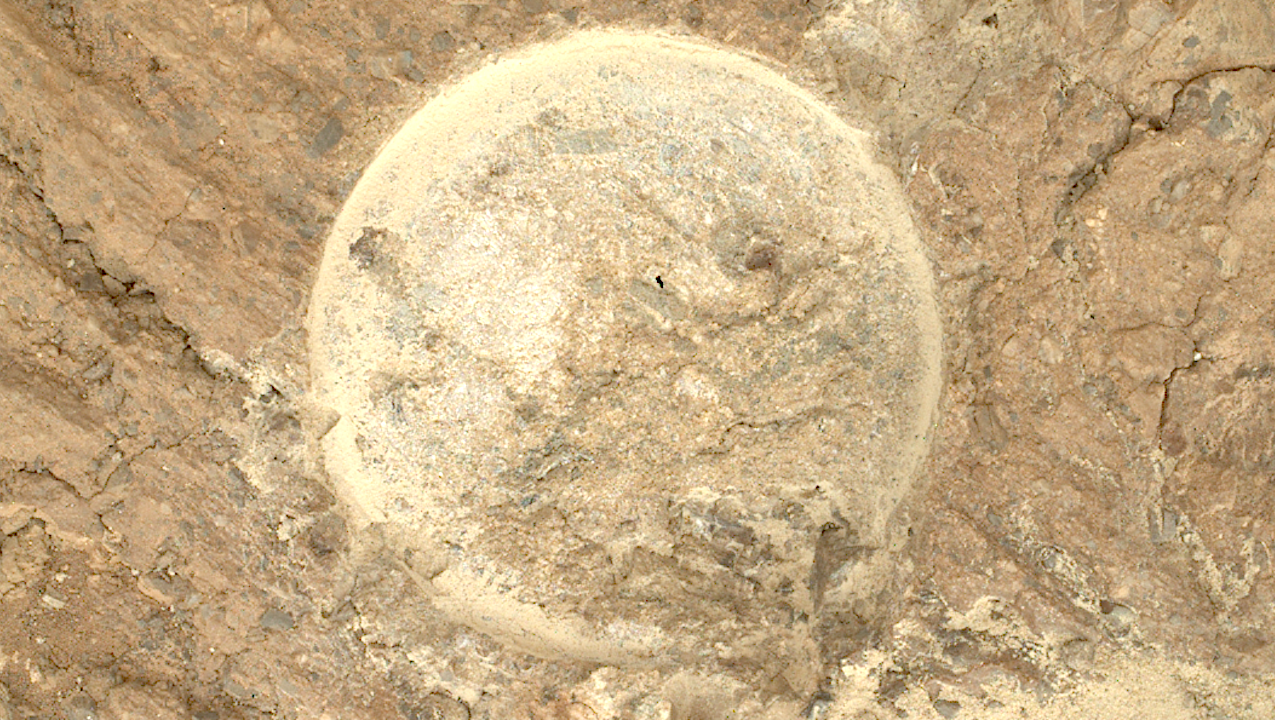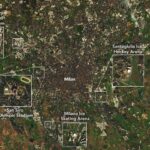Now Reading: Yeast Survives Martian Conditions
-
01
Yeast Survives Martian Conditions
Yeast Survives Martian Conditions
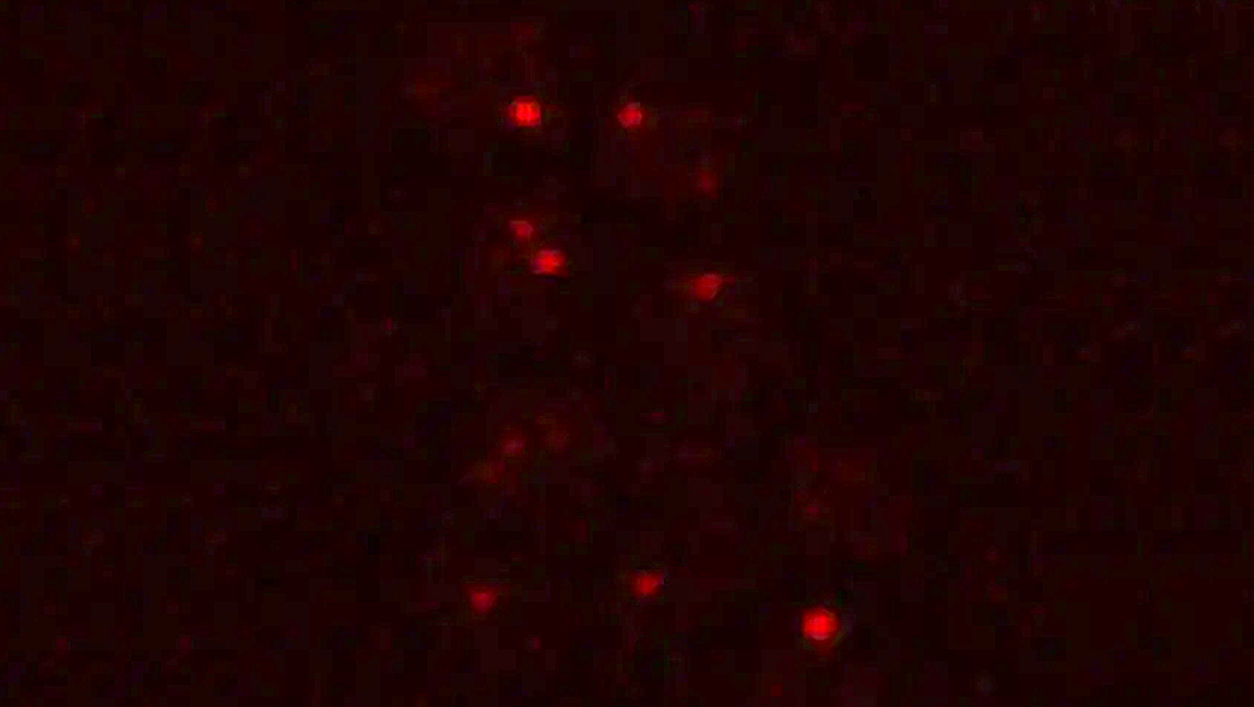

Assembly of ribonucleoprotein condensates in response to Mars-like stress conditions. Credit Dhage et al. — Indian Institute of Science (IISc)
Any life on Mars in the past, present, or future would have to contend with challenging conditions including, among others, shock waves from meteorite impacts and soil perchlorates—highly oxidizing salts that destabilize hydrogen bonds and hydrophobic interactions.
Purusharth I. Rajyaguru and colleagues subjected Saccharomyces cerevisiae, which is a widely used model yeast, to shock waves and perchlorates. The authors chose the yeast in part because it has already been studied in space. When stressed, yeast, humans, and many other organisms form ribonucleoprotein (RNP) condensates, structures made of RNA and proteins that protect RNA and affect the fates of mRNAs.
When the stressor passes, the RNP condensates, which include subtypes known as stress granules and P-bodies, disassemble. The authors simulated Martian shock waves at the High-Intensity Shock Tube for Astrochemistry (HISTA) housed in the Physical Research Laboratory in Ahmedabad, India. Yeast exposed to 5.6 Mach intensity shock waves survived with slowed growth, as did yeast subjected to 100 mM sodium salt of perchlorate (NaClO4)—a concentration similar to that in Martian soils.
Yeast cells also survived exposure to the combined stress of shock waves and perchlorate stress. In both cases, the yeast assembled RNP condensates. Shock waves induced the assembly of stress granules and P-bodies; perchlorate caused yeast to make P-bodies but not stress granules. Mutants incapable of assembling RNP condensates were poor at surviving the Martian stress condition.
Transcriptome analysis identified specific RNA transcripts perturbed by Mars-like conditions. According to the authors, the results show the importance of yeast and RNP condensates in understanding the effects of Martian conditions on life.

Model depicting the importance of RNP condensate in mediating survival under Mars-like stress condition. In wild-type cells, sodium perchlorate stress causes cell wall damage and protein misfolding, which coincides with P-body assembly and stabilization of stress-related transcripts (SPI1, ROM2, SSE2, ERO1, and SSA1). This enables maintenance of cell wall integrity and protein folding, thereby promoting survival. In contrast, P-body assembly mutants fail to form condensates, leading to decreased abundance of these transcripts and heightened sensitivity to perchlorate stress. — PNAS Nexus
Ribonucleoprotein (RNP) condensates modulate survival in response to Mars-like stress conditions, PNAS Nexus (open access)
Astrobiology,
Stay Informed With the Latest & Most Important News
Previous Post
Next Post
-
 01Two Black Holes Observed Circling Each Other for the First Time
01Two Black Holes Observed Circling Each Other for the First Time -
 02From Polymerization-Enabled Folding and Assembly to Chemical Evolution: Key Processes for Emergence of Functional Polymers in the Origin of Life
02From Polymerization-Enabled Folding and Assembly to Chemical Evolution: Key Processes for Emergence of Functional Polymers in the Origin of Life -
 03Thermodynamic Constraints On The Citric Acid Cycle And Related Reactions In Ocean World Interiors
03Thermodynamic Constraints On The Citric Acid Cycle And Related Reactions In Ocean World Interiors -
 04Φsat-2 begins science phase for AI Earth images
04Φsat-2 begins science phase for AI Earth images -
 05Hurricane forecasters are losing 3 key satellites ahead of peak storm season − a meteorologist explains why it matters
05Hurricane forecasters are losing 3 key satellites ahead of peak storm season − a meteorologist explains why it matters -
 06Binary star systems are complex astronomical objects − a new AI approach could pin down their properties quickly
06Binary star systems are complex astronomical objects − a new AI approach could pin down their properties quickly -
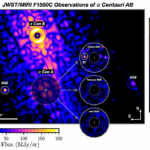 07Worlds Next Door: A Candidate Giant Planet Imaged in the Habitable Zone of α Cen A. I. Observations, Orbital and Physical Properties, and Exozodi Upper Limits
07Worlds Next Door: A Candidate Giant Planet Imaged in the Habitable Zone of α Cen A. I. Observations, Orbital and Physical Properties, and Exozodi Upper Limits












